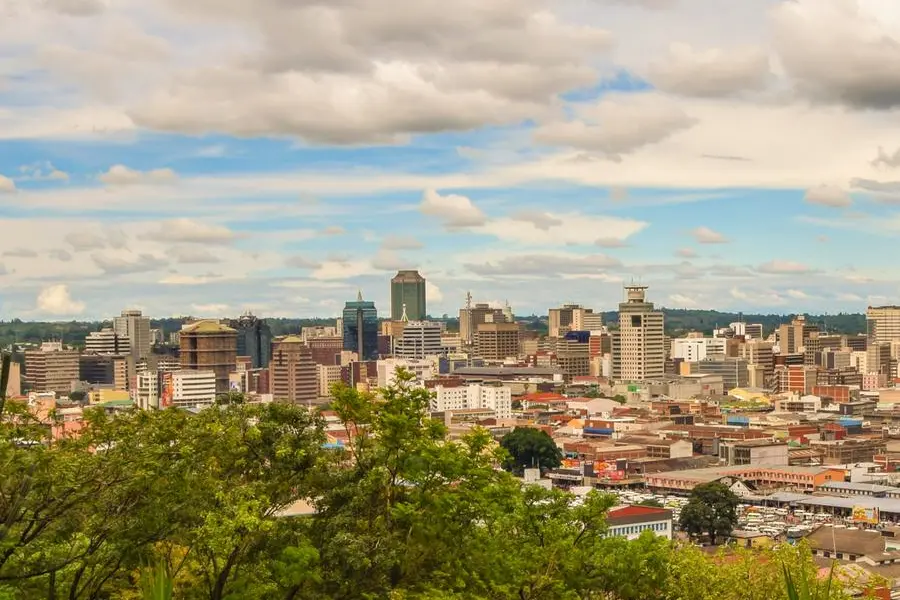PHOTO
According to information minister Jenfan Muswere, “All land held by beneficiaries of the Land Reform Programme under 99-year leases, offer letters and permits, will now be held under a bankable, registerable and transferrable more secure document of tenure, to be issued by the Government of Zimbabwe to beneficiaries.”
This is supposed to enhance security of tenure to the land held by these beneficiaries of the Land Reform Program, which began in the early 2000s.
In other words, these beneficiaries can now freely use the land as collateral in securing loans from banks, as well as be able to sell it if they so desired.
Herein lies the problem.
To begin with, how can people who never paid a cent for this land in the first place suddenly be permitted to sell it to others, obviously for a fortune?
Was this land not appropriated from white farmers, with the beneficiaries never paying for its possession?
Was the whole idea behind the Land Reform Program not to supposedly ‘correctly historical injustices’ by giving land to ‘landless black people’?
So, under what logic can these same beneficiaries now be allowed to sell this land as if they bought and have title deeds to it?
If anything, is all agricultural land in Zimbabwe not supposed to be state land?
All agricultural land is vested in the state, according to sections 72 and 290 of the Constitution, and can only be occupied by a lease or other agreement with the State (Section 291).
How, then does the government of Zimbabwe find the audacity to announce a new land tenure policy which effectively regards beneficiaries of the Land Reform Program as ‘owners’ of the land they were given under lease, and can now sell it?
Only an amendment to the Constitution can make this possible.
Yet, as with the current debate on the presidential term limit, Chapter 16 of the Constitution (which deals with land) can not be amended with a simple two-thirds majority in both Houses of Parliament but also has to be taken to the people via a national referendum.
As such, those who were given land under 99-year leases, offer letters and permits can not sell these properties as they do not own them.
They belong to the state.
If anything, the government can instead make it possible for these beneficiaries or anyone else who may want to own agricultural land to purchase it from state.
That way, they can own the land and be free to resell it.
However, as mentioned before, this can only happen through a constitutional amendment to Chapter 16, which requires a national referendum on top of the two-thirds majority in Parliament.
Secondly, there is another most unsettling aspect to this new land tenure policy.
Amongst other conditions, this new policy mandates that this land can only be transferrable to so-called ‘indigenous Zimbabweans’.
I quote: Security of tenure to all agricultural land regularized under this program will at all times only be transferrable among indigenous Zimbabweans.
What the government is saying is that, in the event of these land beneficiaries deciding to sell the properties, they can only do so to supposed ‘indigenous Zimbabweans’.
When I heard this statement, the first question that came into my mind was: Who exactly is an ‘indigenous Zimbabwean’?
In other words, how do we define an ‘indigenous Zimbabwean’?
In Zimbabwe, it has come to be accepted, without any legal basis, that people of southern African descent whose predecessors were in the country prior to 1890 are considered indigenous Zimbabweans.
Nonetheless, the Constitution does not make reference to indigenous peoples, except incidentally in section 295(1), where it states, ‘indigenous Zimbabwean’, but does not define the term.
Whereas the controversial Indigenisation and Economic Empowerment Act (Chapter 14:33), defines an indigenous person in Zimbabwe as, “any person who, before the 18th April, 1980, was disadvantaged by unfair discrimination on the grounds of his or her race, and any descendant of such person.”
If we are to work with both these definitions, then what this basically means is that ‘indigenous Zimbabweans’ are predominantly black Zimbabweans.
With the new land tenure policy in mind, this means that only black Zimbabweans can buy agricultural land in the country.
Now, this poses another challenge.
Section 289(b) of the Constitution clearly states: Every Zimbabwean citizen has a right to acquire, hold, occupy, use, transfer, hypothecate, lease or dispose of agricultural land regardless of his race or her race or colour.
In other words, every Zimbabwean, regardless of race or skin colour, has the constitutional right to acquire land in Zimbabwe.
So, what is all this nonsense about land only being transferrable among indigenous Zimbabweans?
It can not be doubted that everything about the new land tenure policy announced by the government of Zimbabwe is unconstitutional and therefore invalid.
Not only can those who benefited from the Land Reform Program not legally sell the properties they acquired, but the entire ‘indigenous Zimbabwean’ provision is nonsensical.
What, then, was the motivation behind this policy formulation?
Was this meant to be some devious scheme for those in power who obviously benefited from multiple farms under the Land Reform Program to reap where they never sowed?
Only they can give us the answer.
© Copyright The Zimbabwean. All rights reserved. Provided by SyndiGate Media Inc. (Syndigate.info).




















